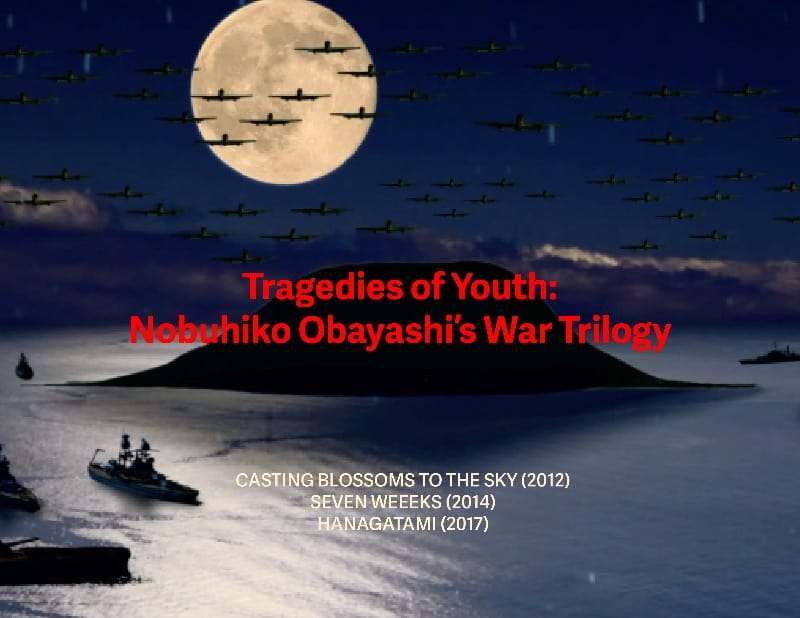“In Our Prime” by Liu Yulin – It's Hard to Be an Adult
The film paints a rather depressing picture of Chinese society. On all fronts, the protagonists struggle against loneliness, impoverishment and illness. At the center is Yitian, a single parent who lives with her son in Shenzhen and works as a radio weather forecaster. Her ex-husband also lives there with his new wife. He is broke, but keeps up appearances and borrows money from Yitian, although she actually needs help from him. Their son needs to be enrolled in school, but the schools in their own neighborhood are not good enough, so Yitian wants her husband to sign over their former house in a better neighborhood, just pro forma. Her husband's new wife, however, does not agree. She is also not the only jealous wife who has it in for Yitian. There's also her boyfriend's, who doesn't want to divorce her husband at any price because she can't bear to see him start a new family.
Chinese director Liu Yulin also stars in this drama with a conciliatory ending. Her previous film “Someone to talk to” was already about relationships, loneliness and closeness. The two films have similarities, they are, for example, formally quite conventional with a rich color palette and a rather calm camera work. But “In Our Prime” lacks density in the narrative in comparison. Also, some twists seem quite forced. The fairy-tale tone the film takes in parts contrasts with the sober view of the circumstances. It is a pity that hardly any context is given for the latter. Without even knowing about the social reality in China, about the contrast between city and province, about the position of women or about the difficulties for small entrepreneurs in the new free market economy, it would be difficult to classify the film.
“Anchor” by Jeong Ji-yeon – Behind the Facade
Sera Jung has been a television news anchor for seven years. She is popular with her superiors and viewers because she seems so flawless, so professional. Her mother follows each of her broadcasts very closely and always has something to criticize. She was once in the profession herself and has high expectations of her daughter. It's palpable how this puts Sera under pressure. In addition, some young female colleagues at the station would like to take her place. One evening, shortly before the start of the news broadcast, Sera receives a call from a woman who says that she and her daughter are being threatened at home. She is told to come quickly and report immediately. Although Sera first dismisses the call as a prank, the matter doesn't let her go and she visits the address the woman gave her that night. There she finds a dead child and the woman who hanged herself. This discovery triggers a trauma in her and she is haunted by delusions.
What begins as a crime story develops more and more into a horror film. The movie is atmospheric and comes up with some unexpected twists. It is acted confidently by both Chun Woo-hee in the lead role and Shin Ha-kyun, who embodies a somewhat mysterious psychiatrist. “Anchor” is suspenseful and works as a self-contained genre film. At the same time, it tackles important social issues. Korean director Jeong Ji-yeon, who has already focused on family dynamics in her earlier works, tells of a destructive mother-daughter relationship with “Anchor”. It also deals with mental illness, social pressure to perform, and the difficulties of being a mother.
“A Letter from Kyoto” by Kim Min-ju – Memories
Yeongdo is a district of Busan. An elderly woman lives there with two of her daughters, the middle one is in Seoul working as a writer. She comes home because she is supposed to have a few days off and this upsets the routine in the family. The older daughter works in an accessories store and the younger one is training for a hip hop dance competition. In between is the mother, who is showing signs of confusion and, in fact, is diagnosed with the beginnings of dementia. In the mother's belongings, the daughters find letters in Japanese and learn that the mother was born in Kyoto. As the child of a Korean father and a Japanese mother, she had a hard time in childhood in Korea because they openly discriminated against those of Japanese descent at the time. Before she forgets everything, the daughters want to give their mother a last emotional as well as physical journey to her second homeland.
“A Letter from Kyoto” is completely without sensationalistic twists. In a realistic way it tells about the dynamics between siblings and between parents and their children. This is the first feature film for Korean director Kim Min-ju. She has won an impressive ensemble of only female actors for it, who harmonize with each other.

“The Wind Will Say” by Wei Renai Yongyao – Misunderstandings
Icy and her boyfriend come back to China from London, where they plan to live and work from now on. On their way to Shanghai, they visit Icy's parents, who are divorced. Their father picks them up at the train station, Icy's boyfriend is beaten, his suitcase stolen, in it were the graduation diplomas of the two. From then on, the father tries everything to recover this suitcase and puts himself in serious danger.
It is quite an exciting story that the Chinese director wants to tell here with Shenzhen as his point of departure. But it seems artificially bloated in many places. This impression is solidified by the rather mannered form. Many scenes are superfluous to the plot, serving only to create a mood. But this does not really succeed. Rather, it seems as if the director tried to implement as many visual techniques as possible at once, be it light reflections on windows, shots under water or extensive tracking shots over details of a colorful wall decoration.
Of particular interest in “The Wind Will Say” is the character of the father, played by Taiwanese actor and director Lee Kang-Sheng. Lee last appeared in “Days” by Tsai Ming-liang, where he has already demonstrated his charisma. In “The Wind Will Say”, his character exhibits a mix of childlike naïve curiosity, dogged determination and loving fatherly affection. Lee's performance alone makes the film worth watching.
“Feast” by Billante Mendoza – Family dinner
The signature of Filipino director Brillante Mendoza can be recognized, among other things, by his very subjective handheld camera aesthetic and naturalistic visual language. He often draws his themes from the contrast between social classes, and in many cases it's about individuals who are actually doing everything they can to get through life in their modest means, but are caught up in the process by fate. His new film is set outside the capital Manila in a rural area. Everyone is preparing to host a big feast, the last of the food is being bought for the women at home to prepare. Rafael and his father are also on their way with the wagon. On the way back, they receive a call from Rafael's daughter, who lives abroad. In a panic, Rafael's father gets into the driver's seat and they leave the scene of the accident. After an initial moment of shock, however, it is clear to them that they will face up to their responsibility.
There is no one to condemn in this story. All of them act essentially reasonably and mean each other no harm. That's why they find a way of togetherness and not hatred. Played, “Feast” is outstanding, recorded just as much. A dynamic, colorful picture emerges in which food plays a major role. It stands as a symbol for what connects people, and through it they find comfort. Mendoza situates his film in a strictly Christian society, which is why he also makes use of liturgical rituals that deal with guilt and atonement. They underscore the melodramatic nature of the film, which at times is arguably pathos-laden. Unlike Mendoza's “Ma'Rosa”, for example, “Feast” therefore lacks a second level that goes beyond the purely emotional one.
“December” by Anshul Chauhan – How much does my pain weigh?
Where does justice end and revenge begin? The law cannot exist for the satisfaction of an individual. Seven years ago, Katsu and Sumiko's daughter was murdered by a fellow student. The lawyer of the perpetrator is now taking action against the sentence, which in his opinion was too harsh at the time. It is not to be shaken at all at the severity of the act, but to be brought out that mitigating circumstances were not considered and wrongly not the juvenile criminal law were applied. For Katsu it is inconceivable that the murderer of his daughter should go free, for him she should be punished by death. He wants to do everything he can to testify against the murderess in court. Sumiko, who has divorced him and remarried, only hesitantly gets involved with him again, then she comes to a completely different conclusion than he does.
Indian director Anshul Chauhan has made several films dealing with Japanese society. With “December” he has created an atmospheric chamber drama that raises important ethical questions and describes human nature in its various shades of gray. Perhaps a little overdone here is the portrayal of the alcoholism of the father, played by Shogun, who starred in Brillante Mendoza's boxing drama “Gensan Punch”













